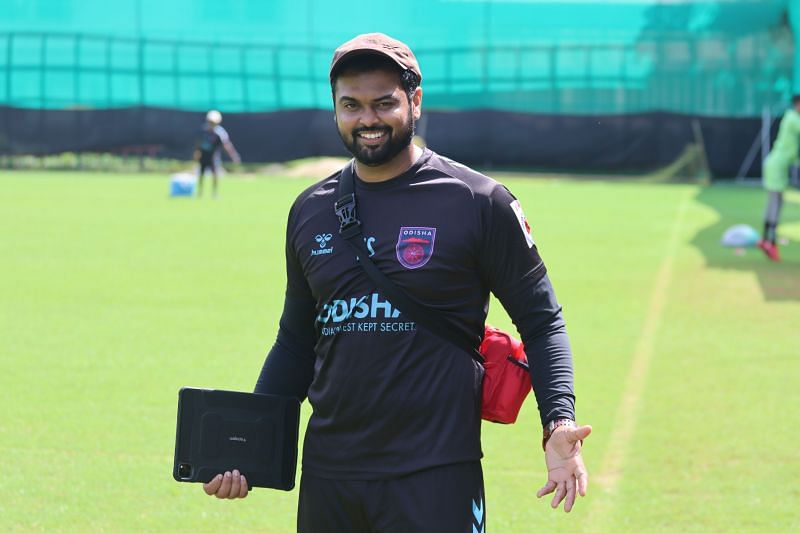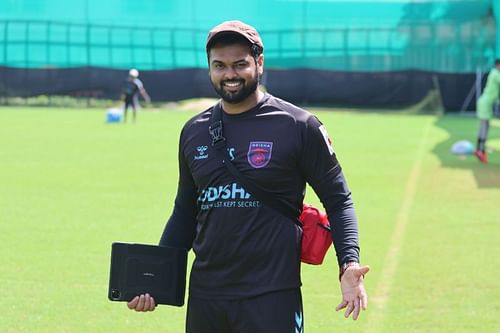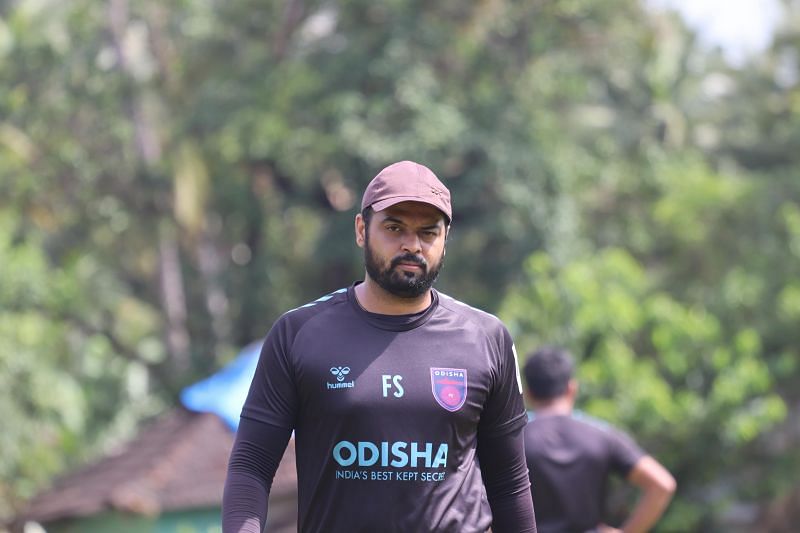
"We never have rest days" - Odisha FC's senior physiotherapist Dr. Firoz Shaikh on COVID-19, the Indian football set-up and more

The growth of Indian football in recent years has largely been guided by improved levels of fitness within different sides. Teams from the Indian Super League (ISL) and the I-League have begun providing more importance to staying fit and monitoring the health of their players for the long seasons they contest in.
Consequently, the physiotherapist and the medical assistance team have become absolutely crucial to various outfits. The COVID-19 pandemic has also made their role much more difficult and required them to adapt to the prevailing conditions in the best way they can.
Dr. Firoz Shaikh, the head physiotherapist of ISL side Odisha FC, spoke to Sportskeeda in an exclusive interview. Dr. Shaikh has also previously worked with NorthEast United from the ISL and has also worked across several sports including kabaddi and cricket.
On the changes brought to his role by COVID-19, Dr. Shaikh said:
"A lot has changed. COVID-19 has changed every aspect of general life and as a sportsperson. During the pandemic's peak, we had last season (ISL 2020-21) in a bubble and things were very difficult."
He also mentioned that while staying within the bio-bubble was difficult, keeping the players fit was an even tougher task.
"They (the players) didn't have access to equipment because lockdown happened very suddenly, nobody had time to react to this. All the gyms and training grounds were closed down for 3-4 months. So, there were a lot of changes physically, a lot of them lost their peak physical conditions. Some of them gained weight, some were not the same on the field."
Resultantly, Dr. Shaikh's role as a sports physio became that much more difficult. He added that he and his team tried to keep up with the players over video calls and provide them with schedules, keeping in mind the equipment each of them had access to, to keep themselves fit. However, there were other issues as well.
"We couldn't do much about their diet as some of the players could still not get access to the food they required," Dr. Shaikh added.
Players now understand their bodies better than before: Dr. Shaikh

Dr. Shaikh also spoke about the unrivaled physical demands imposed upon football players in comparison to other sports.
"In football, the physical demand is higher than in other sports - you need to have the same intensity for 90 minutes, while sports like cricket have breaks in between. The injury rate is much higher in football than in other sports."
Dr. Shaikh added, however, that these injuries in football could be controlled to an extent in due time as the players are now in a better position to deal with them. He said:
"Players now understand their bodies better than before. Five years ago, they were not entirely aware of what to do in the off-season, on-season to prevent injuries. They now have more education about their bodies."
He added that the manner in which seasoned professionals respond to injuries and rehabilitation is different from the younger players.
"If a senior player even has a minor injury or niggle, they come and report it to us. But the younger players sometimes try to hide it, they think 'if I say something, I might not be able to play' and don't immediately come up."
Dr. Shaikh also added that senior players are more independent with respect to their workouts and rehabilitation. Alternately, younger players need more guidance from him and his team when it comes to injuries and rehab.
"Senior players understand their recovery path better. We have to make a more conscious effort for younger players to understand it."
Dr. Shaikh shared interesting details about how incoming transfers from clubs abroad settle into the conditions at their new clubs on the subcontinent. He spoke about the nutrition aspect as well as the players adaption process in other terms.
"We try to replicate the food they are used to eating, but sometimes it's not what they're used to. Apart from that, when they come in, we hold a proper medical assessment. We also contact their old club to collect data on the injuries they're carrying etc."
Dr. Shaikh added that some of these elements have changed since the start of the pandemic and mapped out their methods moving forward.
"Now, they do everything before they join the club and then join us. Going forward, we try to make them come to the club, talk to the players, join the group sessions. We even try to help them learn our culture. Sometimes, they are curious to learn the local languages so that they can communicate better with the Indian players."
"Post the matches, the recovery starts immediately" - Dr. Shaikh speaks about his role on matchdays
The ISL is also notorious for the unbelievably long off-season between two seasons of footballing action. This also makes the medical team's job a little more complicated. Dr. Shaikh said:
"Throughout the season, we collect their data - body weight, muscular examinations etc. Every six weeks, we carry a physical assessment. End of the season, based on their parameters, we give them a program during the offseason for 6-8 weeks and assess that before increasing or decreasing the load."
While this system worked before the pandemic, COVID-19 once again changed the manner in which Dr. Shaikh and his team kept tabs on the players' fitness. They now make each player a 8-10 week program, intended on keeping the workload minimal and merely maintaining the players' physical conditions.
In case of injuries, Dr. Shaikh and his team help the players receive help from local medical and rehabilitation centers. They also occasionally hold sessions over video calls to clarify doubts regarding their fitness or help the players procure equipment to work with.
From Dr. Shaikh's account, it seems quite evident that the role of a sports physio hardly allows them any rest. He only reaffirmed that when asked what a typical matchday looked like for him:
"We prepare for the matches which take place in the evening from the morning. We have to take care of the medical equipment, ice, the nutrition part and carry all of this from our bubble. If players require treatment, we provide that in the morning as well."
Speaking about his post-match duties, Dr. Shaikh said:
"Post the matches, the recovery part starts immediately. We provide them with chocolate milkshakes, chocolate bars, protein shakes and so on. We also ensure they have something to eat before going to sleep. Next day, if someone is carrying an injury, we need to see if they need to go to the hospital. We take a scan, make a report and send it to the coach."
On regular training days, Dr. Shaikh added that they accompany the team to their training sessions and to the gym to ensure injury prevention. They also hold stretching sessions post training. Lastly, if an injured player requires any assistance, Dr. Shaikh and his team provide that as well.
He also spoke about their role when the team is given a rest day, which summed up just how vital the role of the medical team is in football.
"We never have rest days. Players might get a rest day, but we need to see if someone needs anything at any time and we need to always be on our toes."
"It will take time but we are almost there" - Dr. Shaikh on the gap between Indian and continental teams
When asked about the differences between Indian and continental football teams, Dr. Shaikh said fitness is definitely a major factor.
"Fitness is the one aspect we have to improve on. Other countries, the players are moulded early on - the training part, injury prevention and how to take care of their bodies. But for our players, they have come into these things only in recent years."
Dr. Shaikh believes it will take time for Indian players to reach the levels of fitness we are accustomed to seeing from top continental clubs. But he believes the gap is well on its way to being bridged in due course.
"It will happen for sure, it is already happening. We have players in top condition who are appreciated by the foreign players who come in. Outside players have a different perception of us when they come in, but they realize we are almost there. It will take time, but we are almost there," Dr. Shaikh concluded.
Odisha FC open their 2021-22 ISL campaign against Bengaluru FC on November 24th. We expect Dr. Shaikh and his team to have their hands full then as well!





